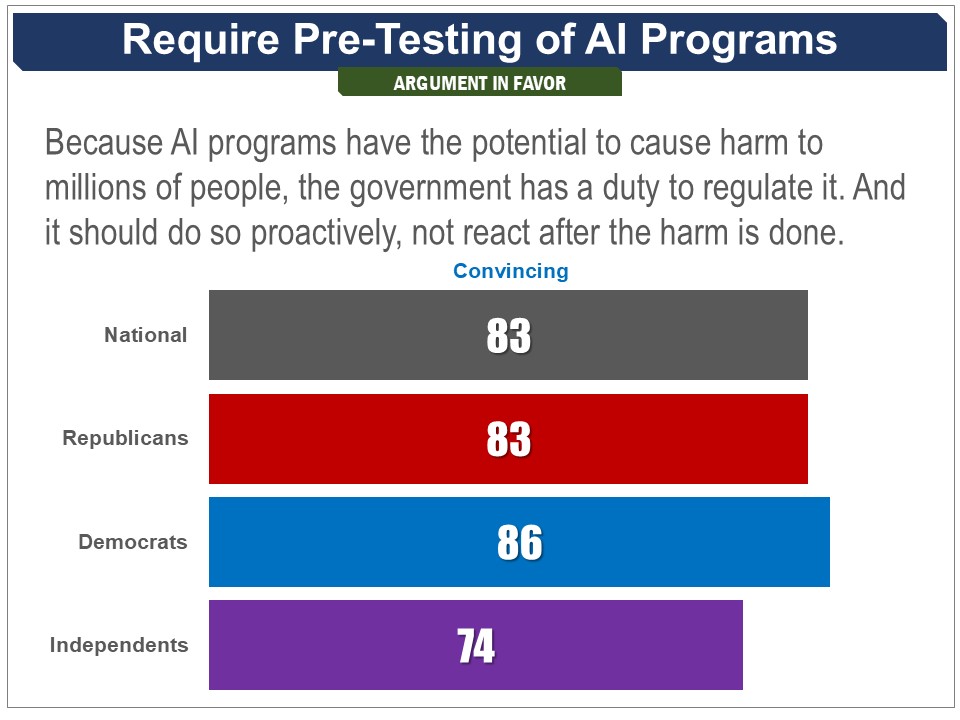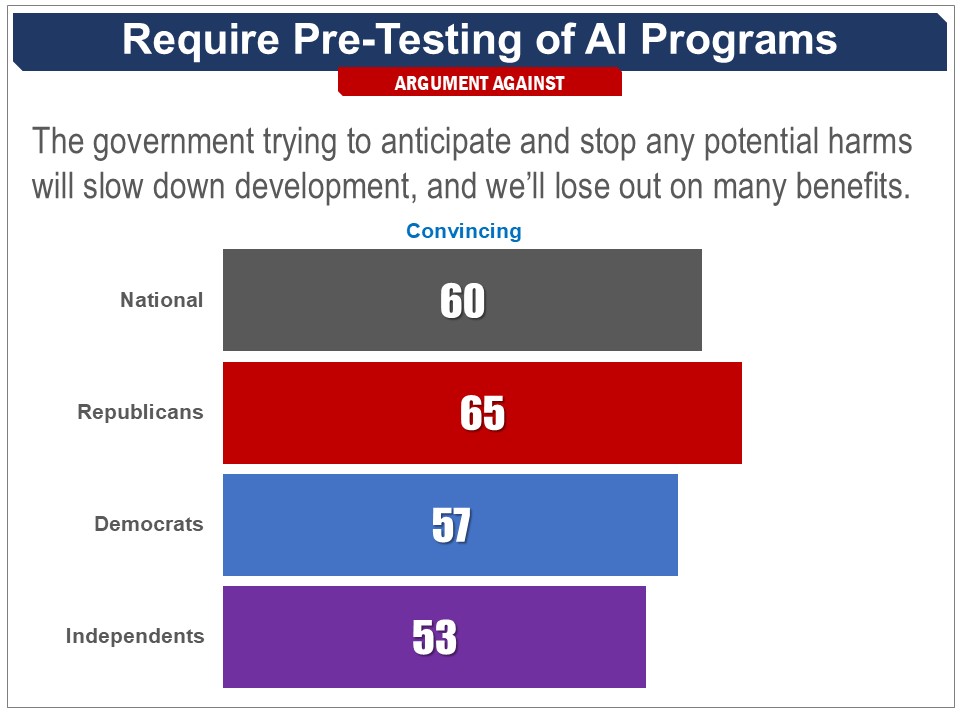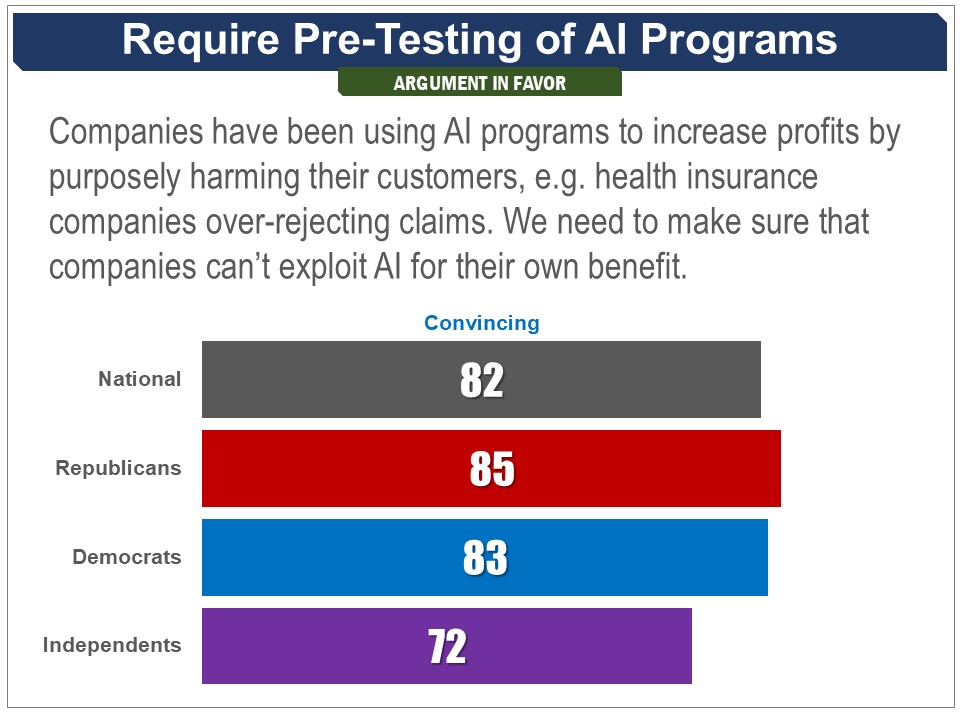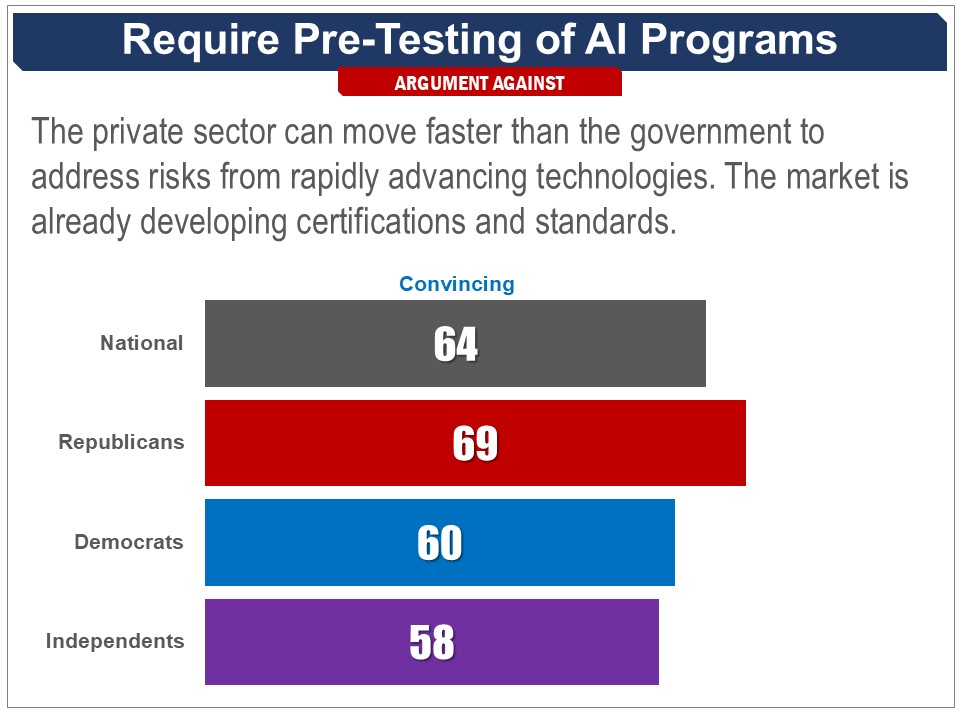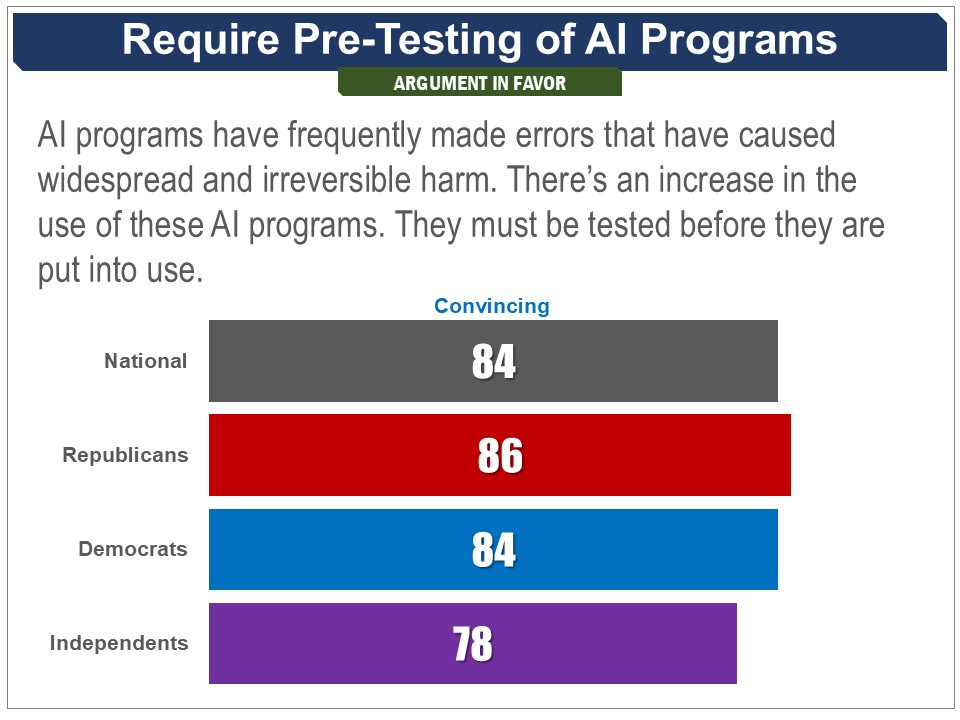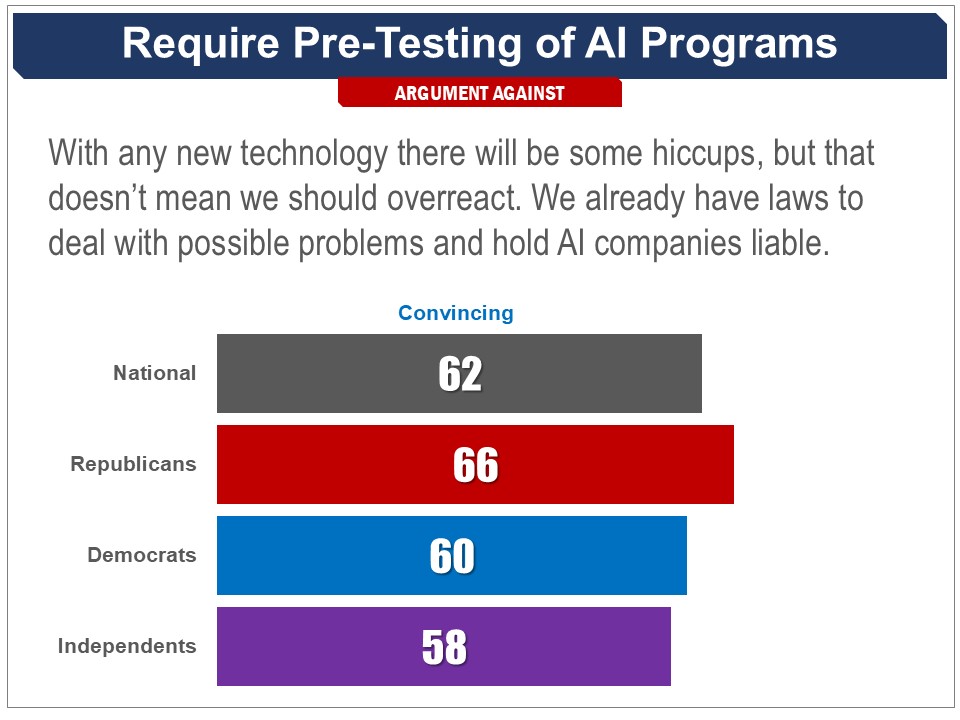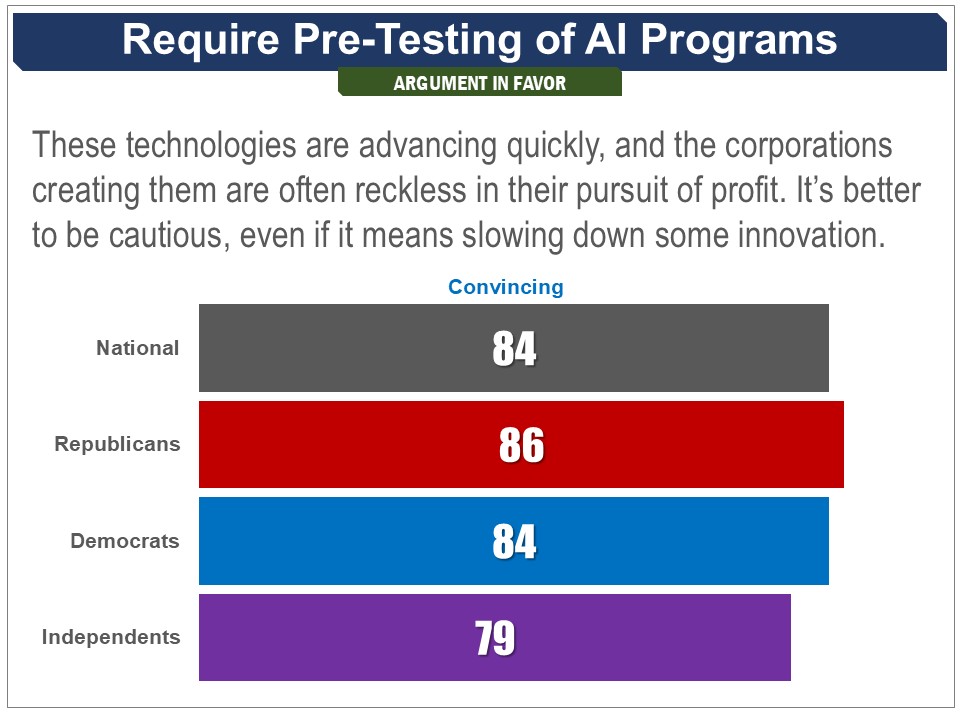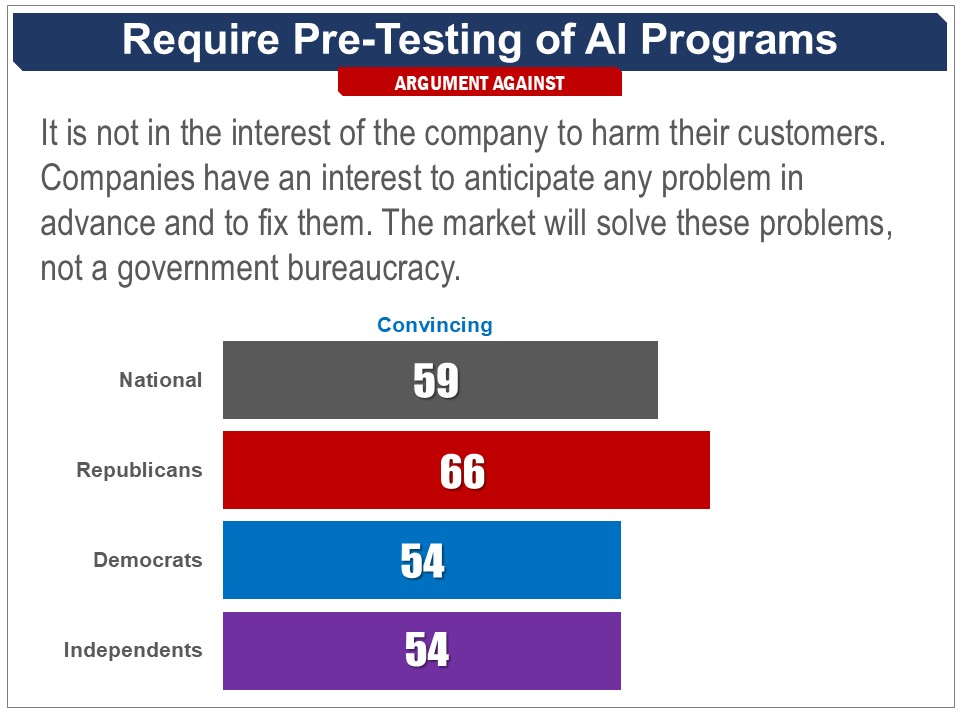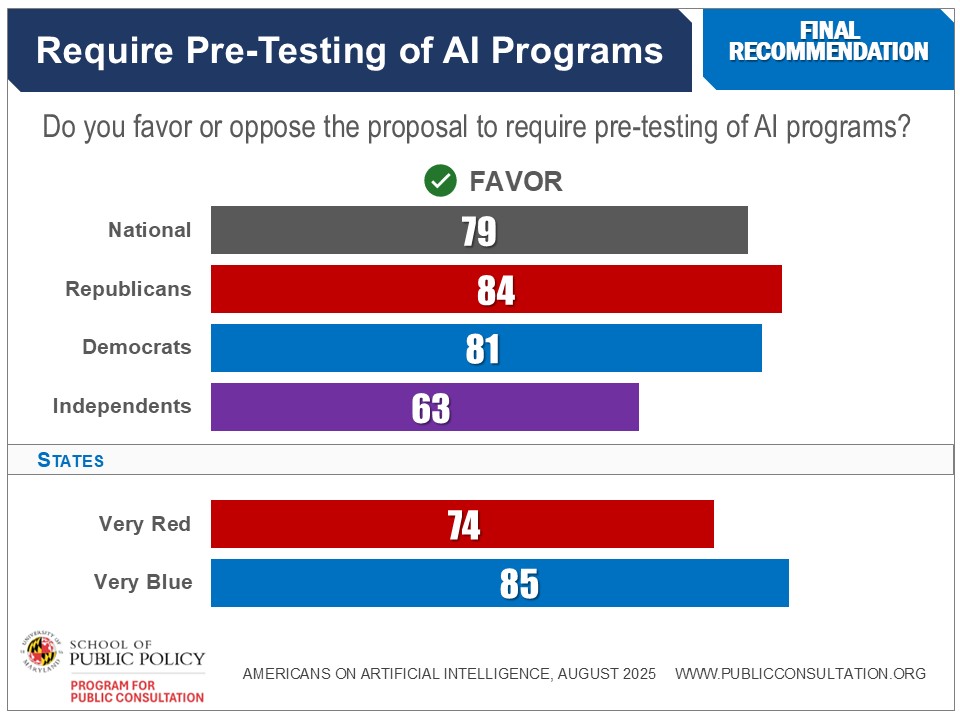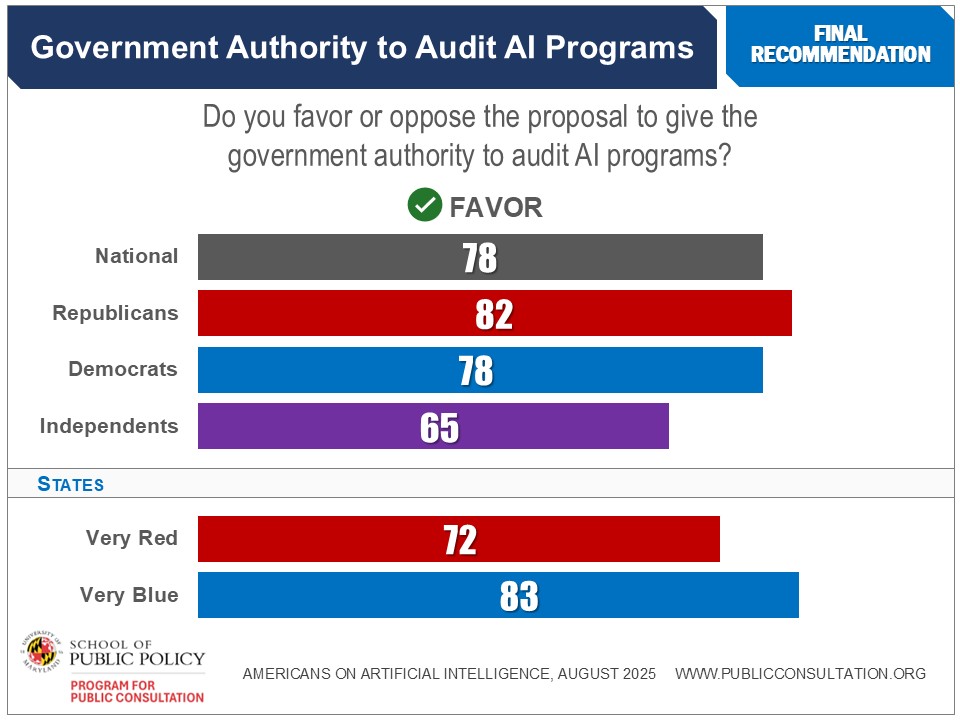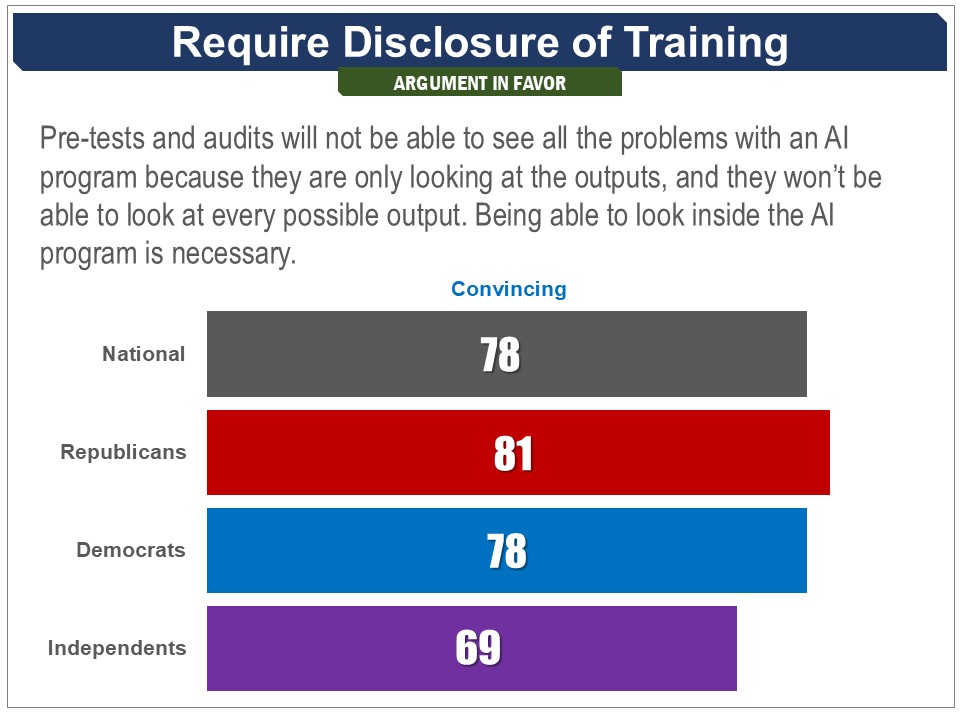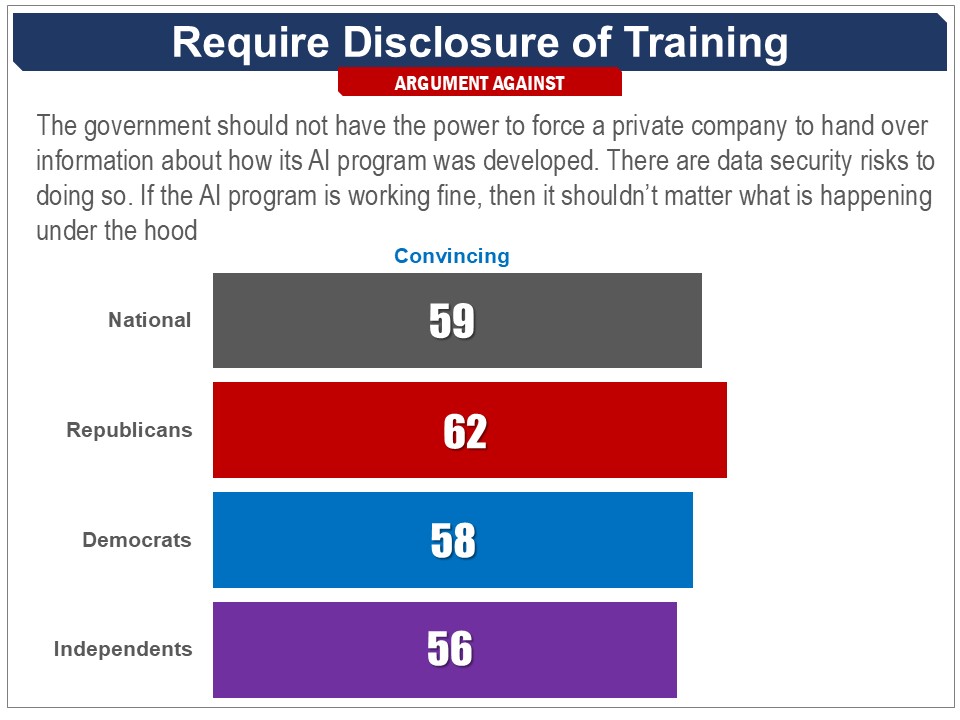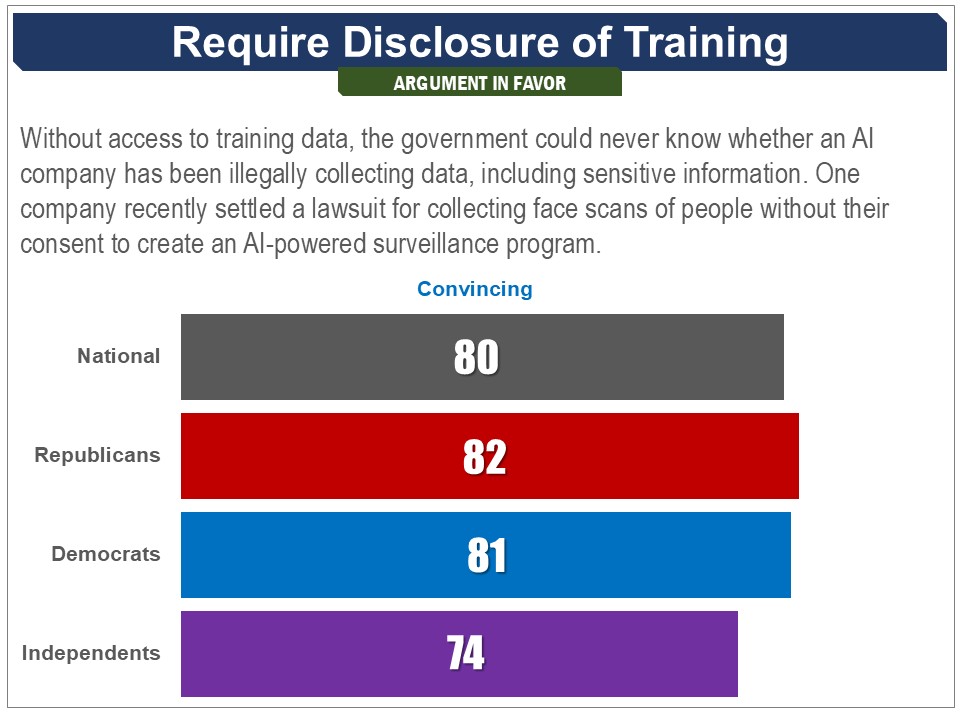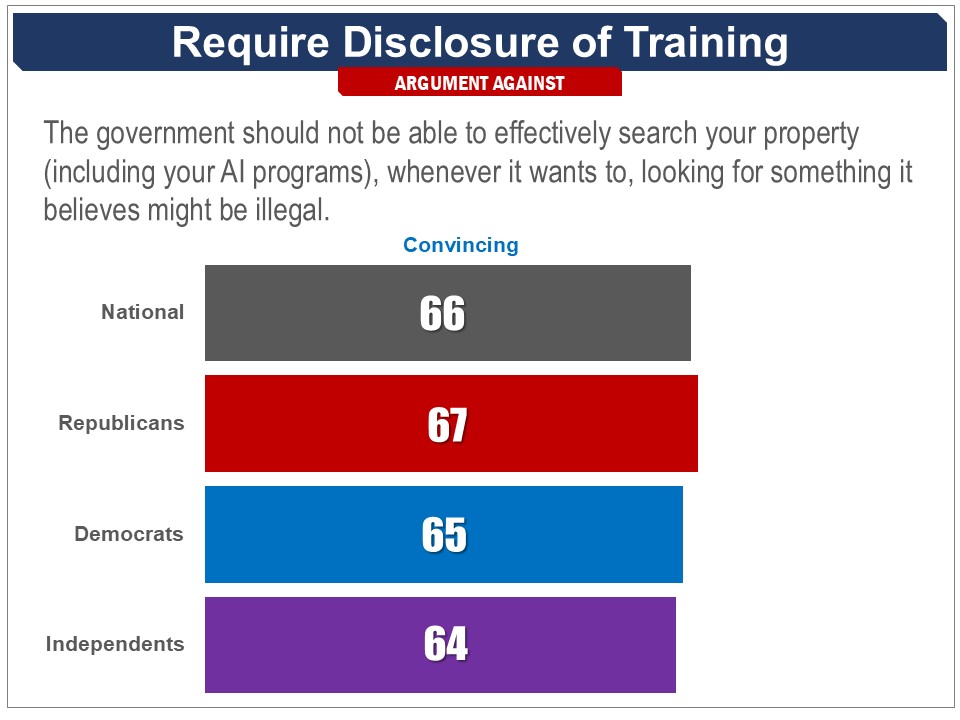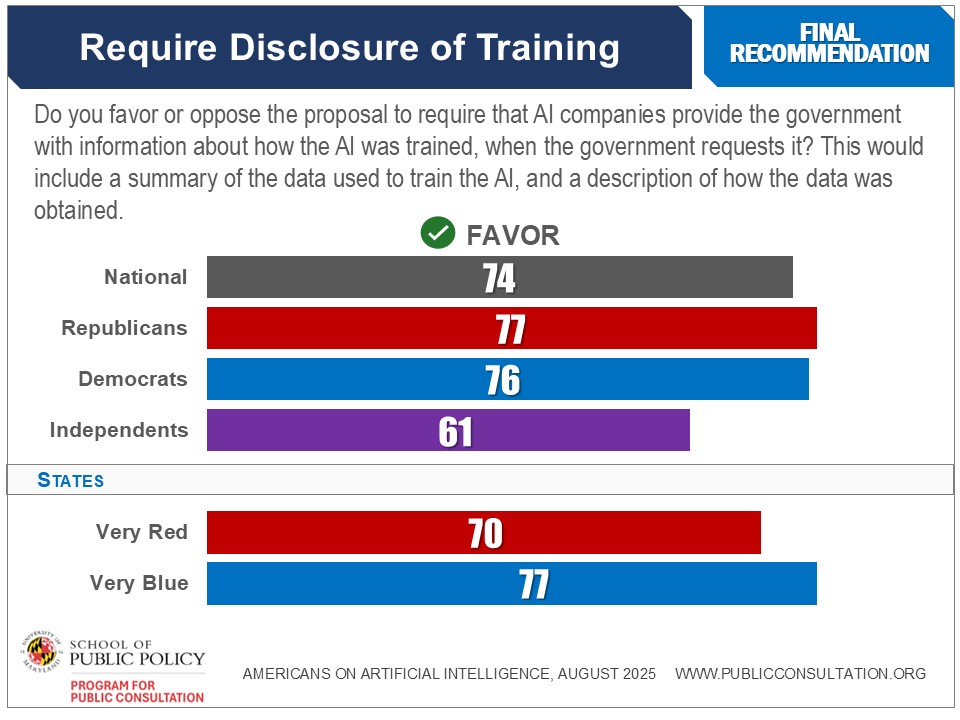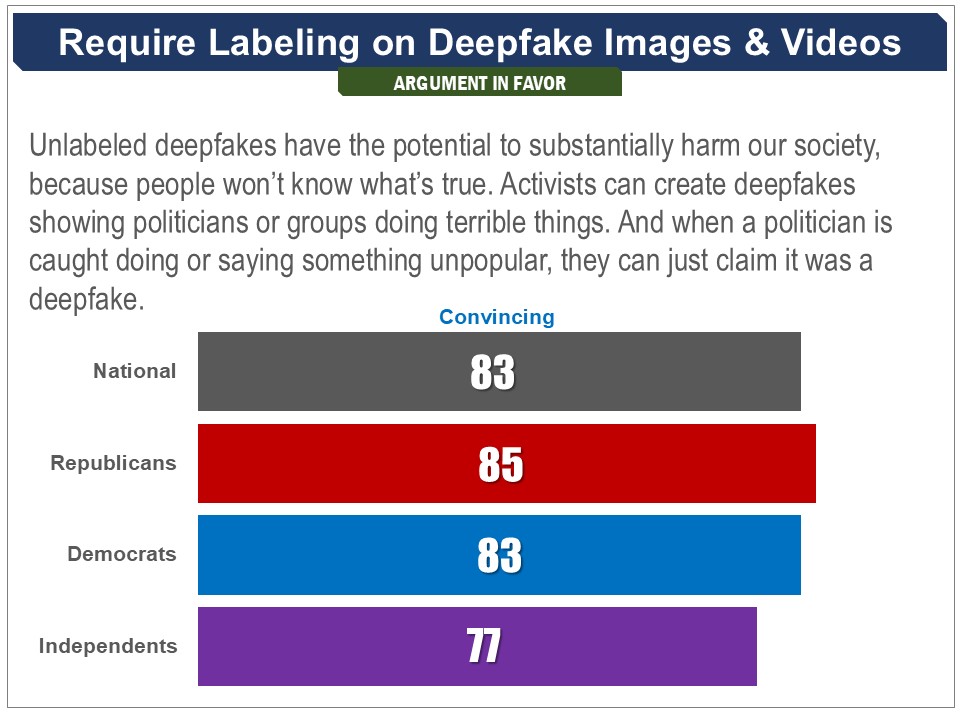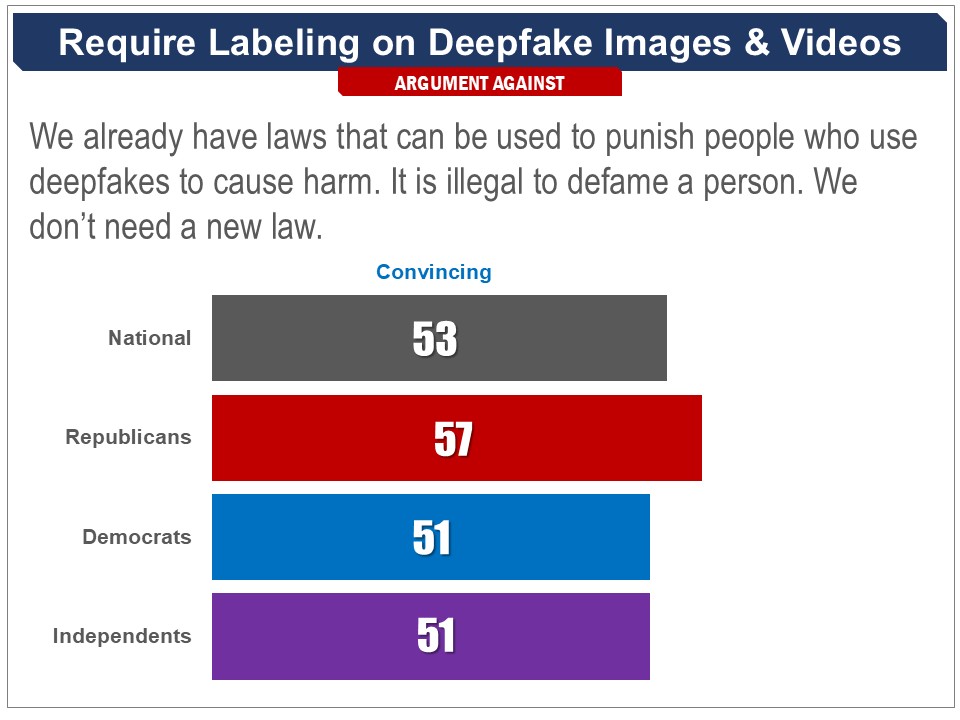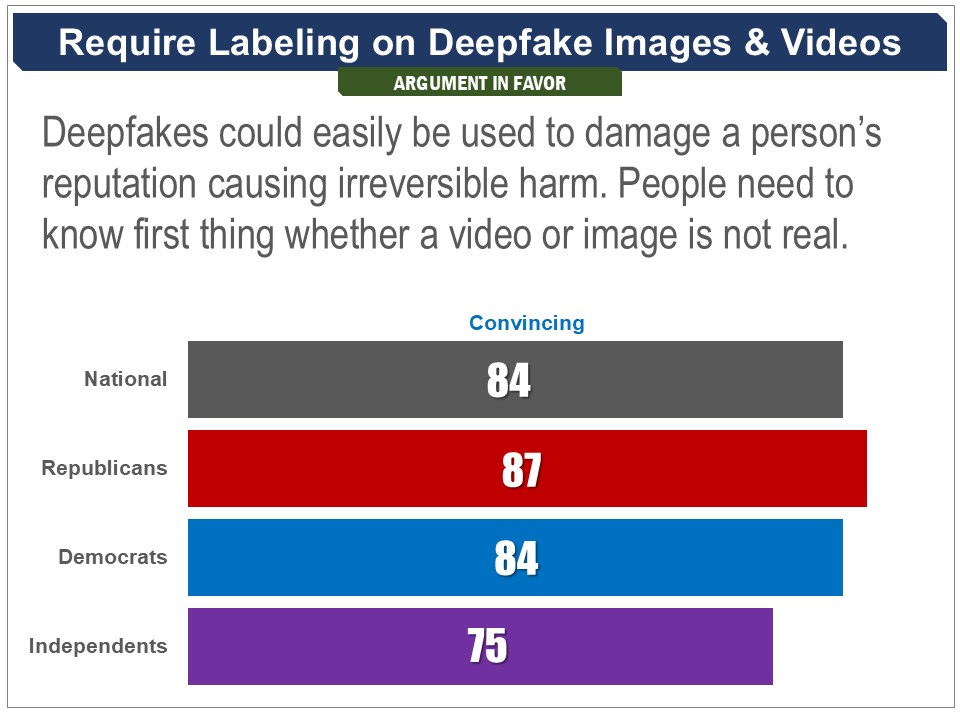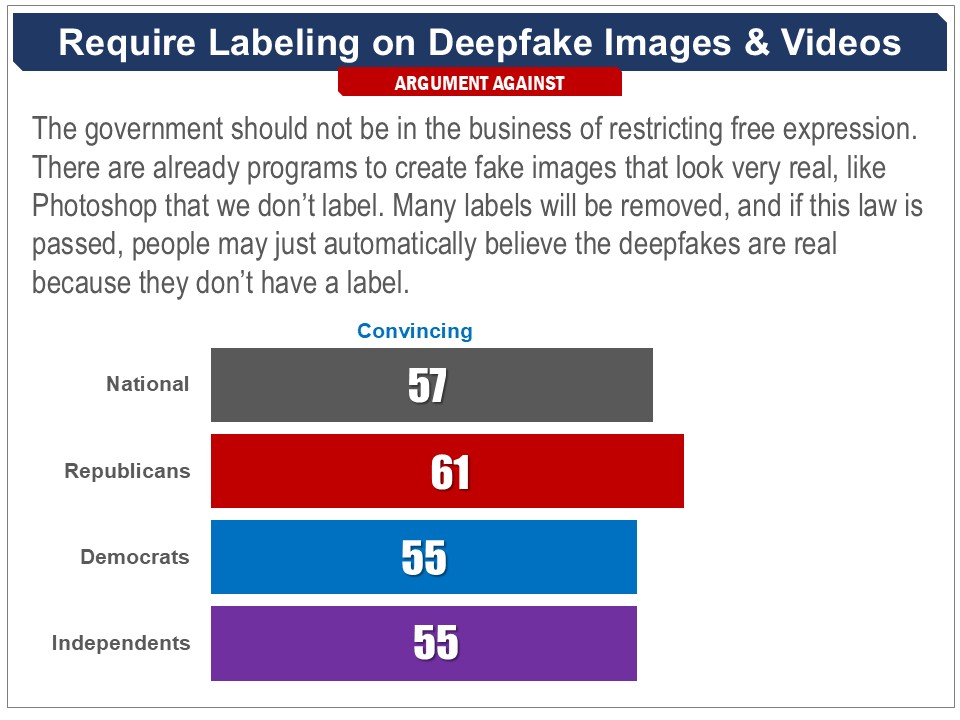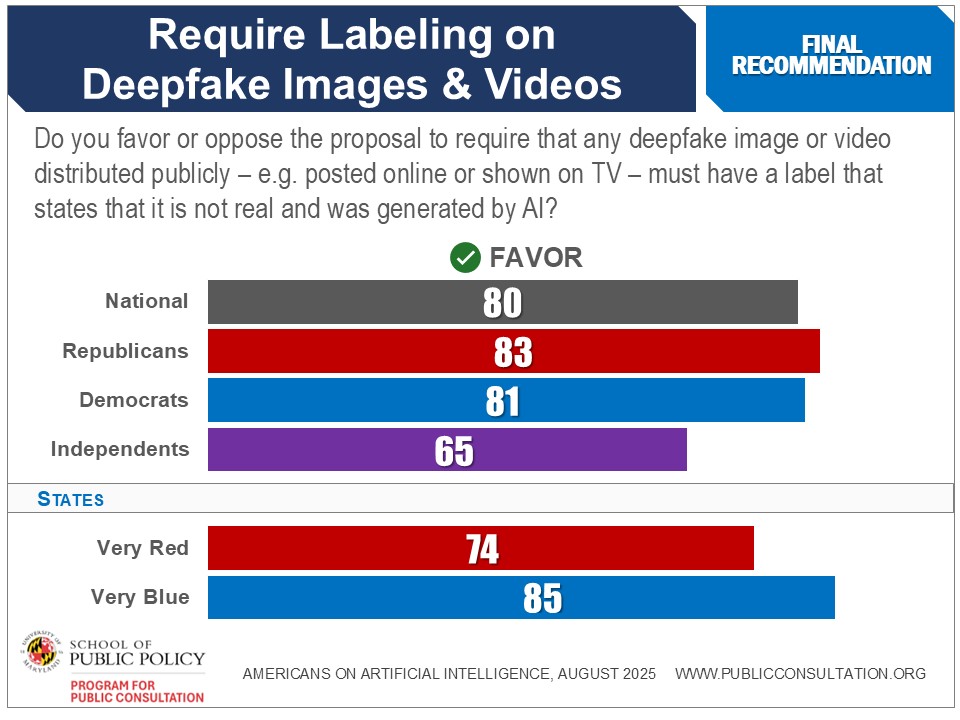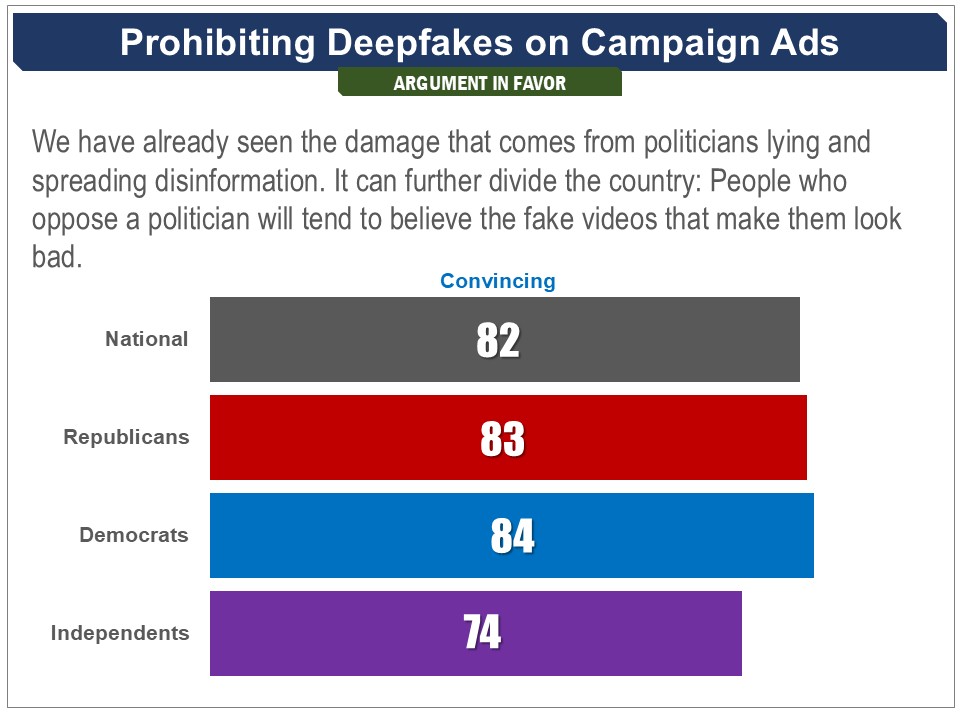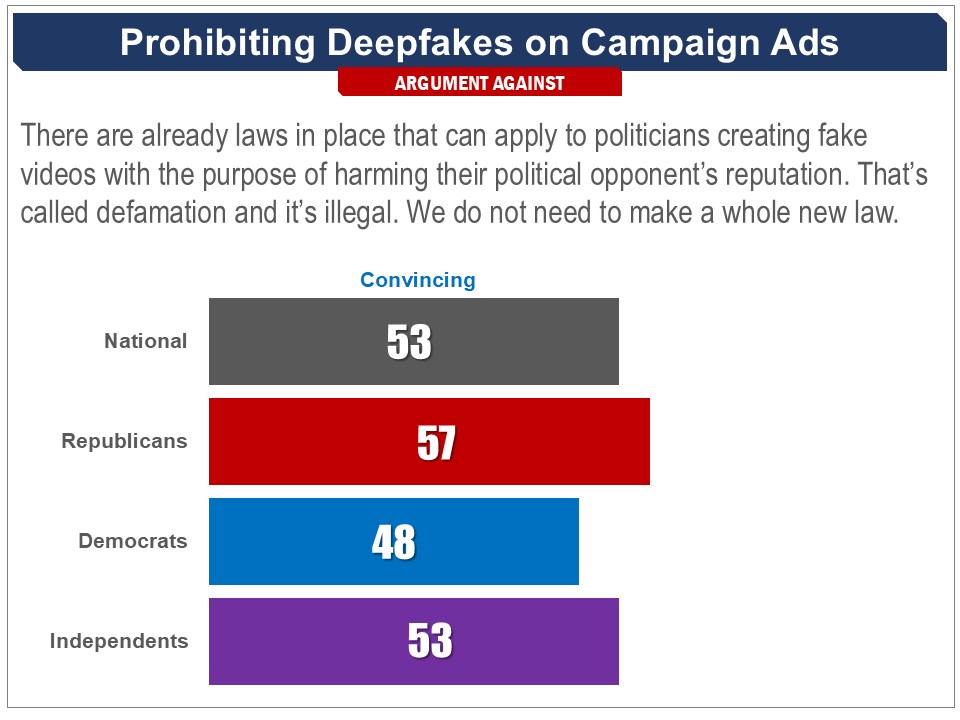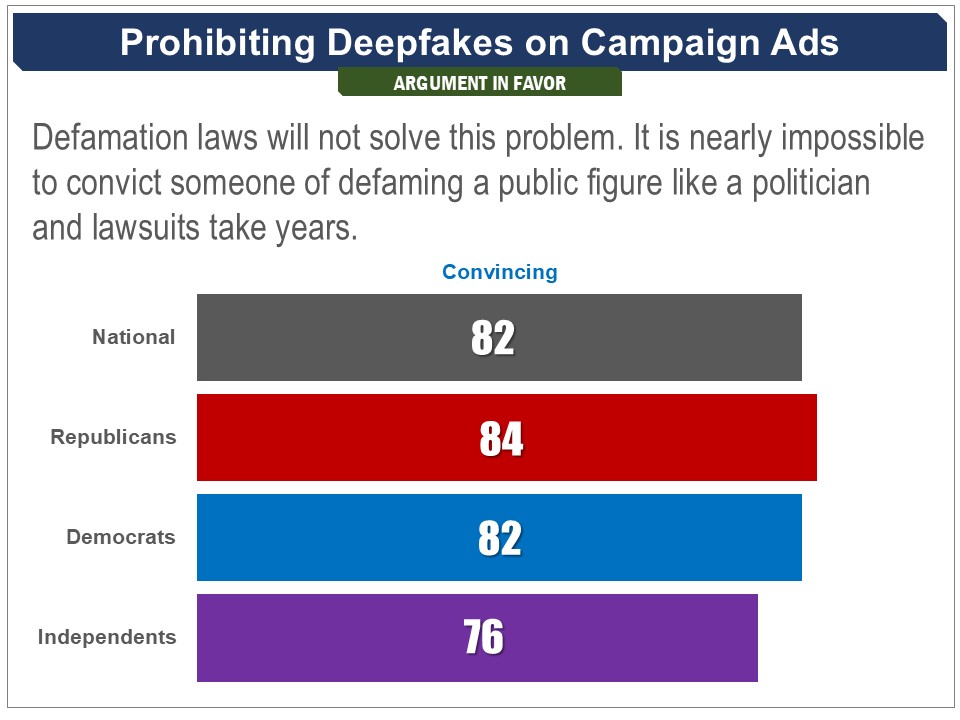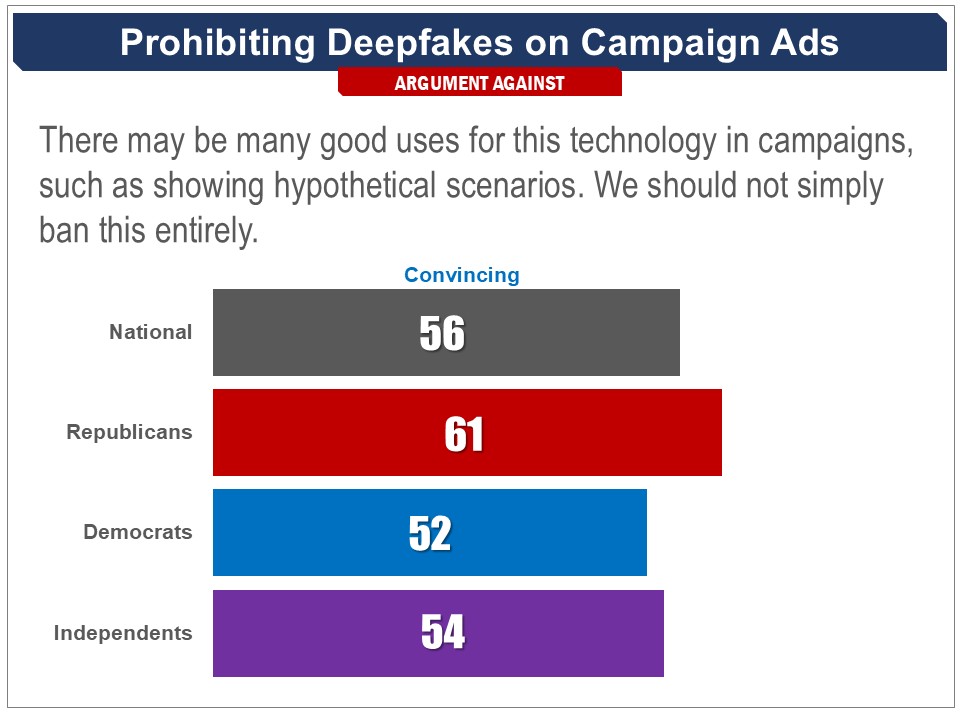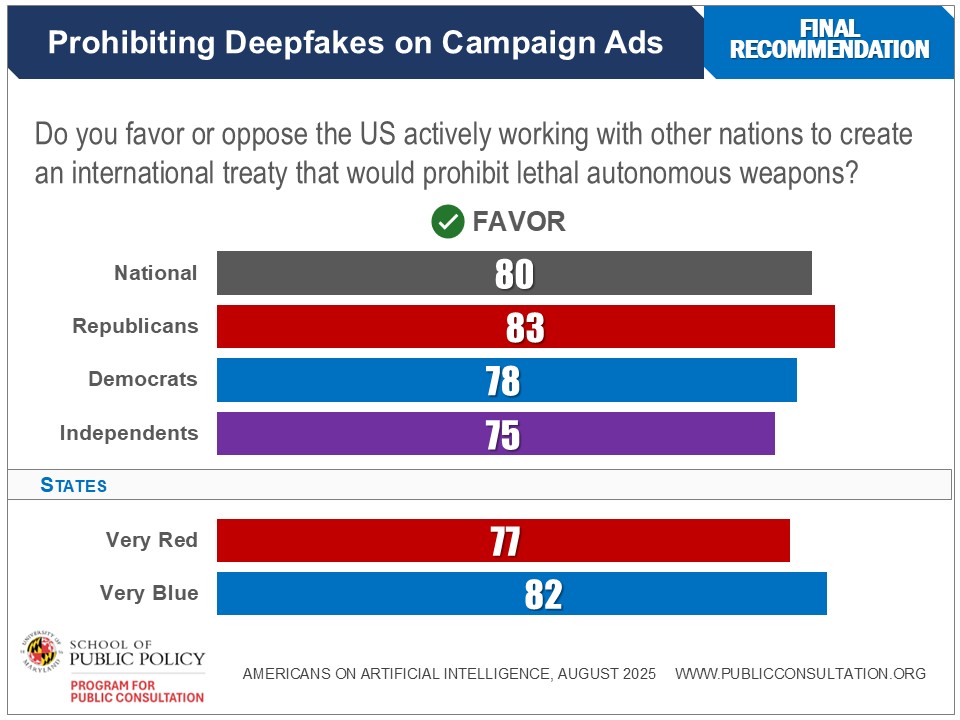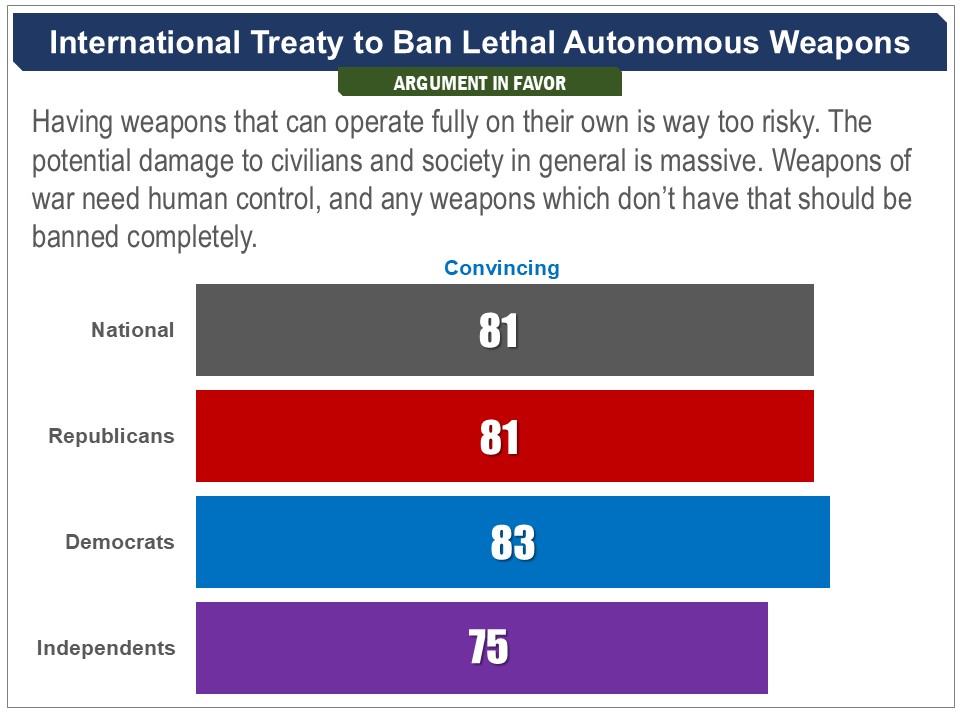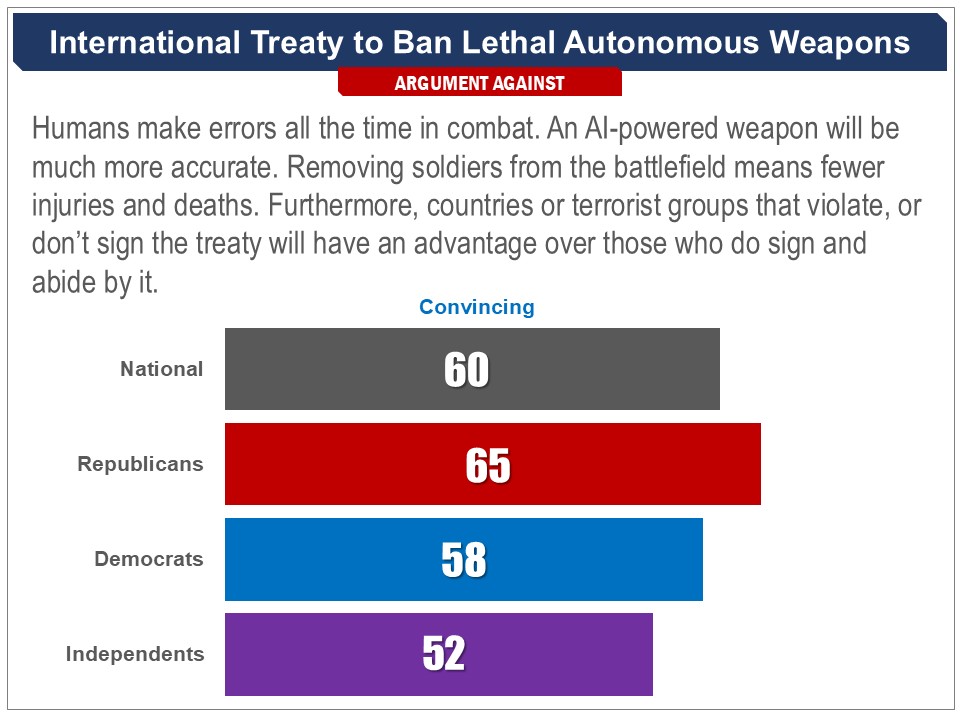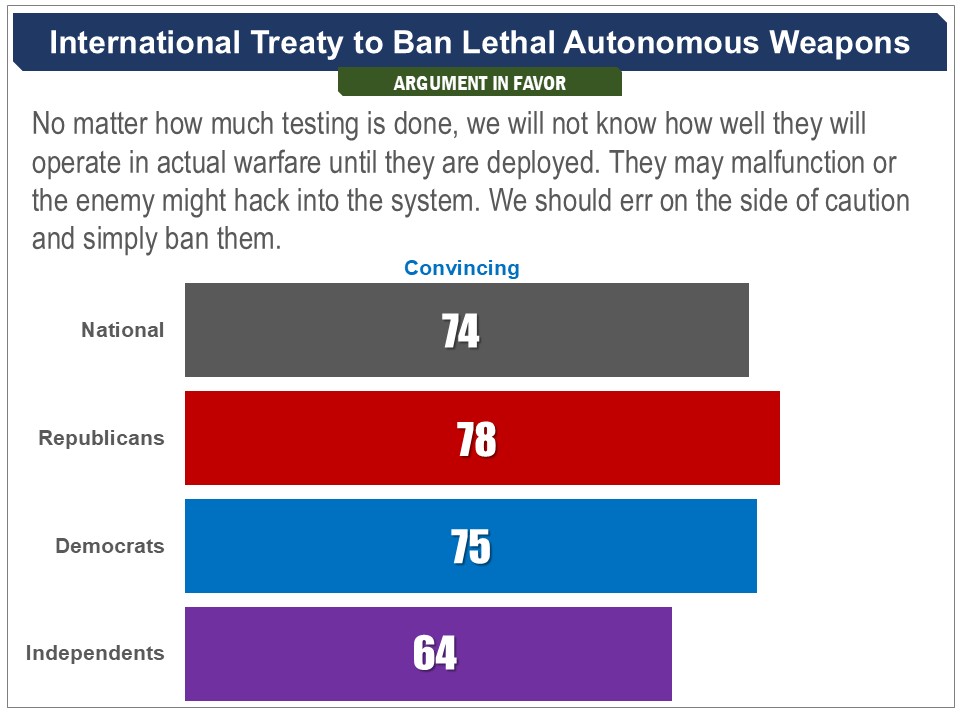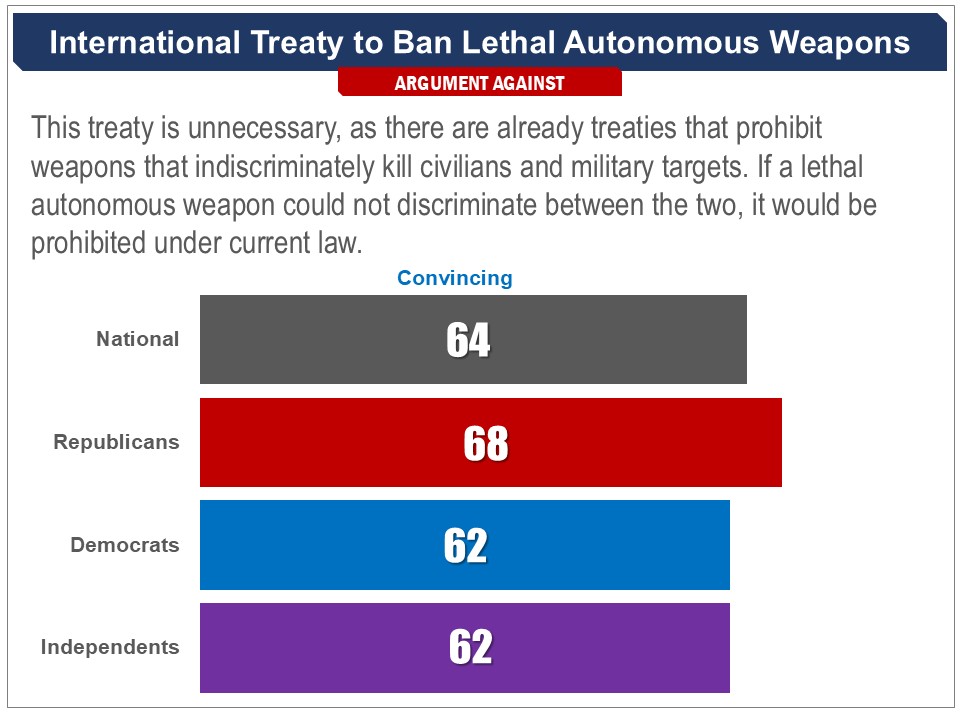Over the last several years, Artificial Intelligence (AI) technology has advanced rapidly, and its usage throughout society has greatly increased. Developments in AI have brought numerous benefits, as well as many concerns about the effects of its current usage, and future potential for harm.
What role, if any, the federal government should have in regulating the development and deployment of AI programs in the US, and internationally, has been the subject of much debate.
The White House’s recently released AI Action Plan recommends against government regulation of AI, saying that it would impede the US becoming the dominant force in artificial intelligence globally.
PPC’s July 2025 survey found overwhelming bipartisan support for:
- three proposed regulations on AI programs that make life-impacting decisions (e.g. in healthcare or banking)
- two regulations on deepfakes, and
- the US working to create an international treaty to ban the development of AI-powered weapons that can fire autonomously.
Each proposal was supported by majorities of both Republicans and Democrats, as well as majorities of people in very red and very blue states, which were categorized using Cook’s Partisan Voting Index.
Regulating Decision-Making AI Programs
Several of the proposals for regulating AI are focused on decision-making AI programs, which were described to respondents as, “AI programs that are going to be used to make decisions that can have significant impacts on people, including in healthcare, banking, housing, education, employment, legal services, and utilities like electricity.”
The proposals presented are for the government to take a preventative approach, which was described to respondents as, “similar to how the government requires testing new drugs.”
Mandatory Government Pre-Tests
A very large bipartisan majority of 79% favor requiring that any new AI program which will be used to make decisions that can significantly impact people’s lives pass a government-run test before it can be deployed, to help ensure it will not violate regulations or best practices, make biased decisions, or have security vulnerabilities. This includes 84% of Republicans and 81% of Democrats, as well as 74% of people in very red states and 85% in very blue states.
Government Audits
A very large bipartisan majority of 78% favor the government having the authority to audit AI programs that make decisions which significantly impact people’s lives, which are currently in use, and require any problems that are found to be fixed (e.g. regulatory violations, biases, or security vulnerabilities). Support includes 82% of Republicans and 78% of Democrats, as well as 72% of people in very red states and 83% in very blue states.
Disclosure of Training Data
A very large bipartisan majority of 74% favor requiring that AI companies provide the government with information about how the AI was trained. Respondents were informed that this would include, “a summary of the data used to train the AI, and a description of how the data was obtained,” but not include, “any sensitive information about individuals, such as medical or financial records.” Support includes 77% of Republicans and 76% of Democrats, as well as 70% of people in very red states and 77% in very blue states.
Regulating Deepfakes
AI programs have been increasingly used to create fake images, audio, or videos, of real people or events, that look completely real, known as “deepfakes”.
Require Labels
An overwhelming bipartisan majority of 80% favor requiring that all deepfakes which are publicly distributed be clearly labeled as such, excluding those used in entertainment to impersonate a real person with their consent. Support includes 83% of Republicans and 81% of Democrats, as well as 74% of people in very red states and 85% in very blue states.
Prohibit Deepfakes in Political Campaign Ads
An overwhelming bipartisan majority of 80% favor making it illegal for political campaigns to use deepfakes in their campaign advertisements. Respondents were told that, “there have already been campaign advertisements that have used deepfakes depicting politicians doing or saying things they have not, and events that have not happened.” Support includes 83% of Republicans and 78% of Democrats, as well as 77% of people in very red states and 82% in very blue states.
International Regulation
International Ban on Lethal Autonomous Weapons
An overwhelming bipartisan majority of 74% favor the US actively working to create an international treaty to ban the development and use of weapons that use AI to fire on targets autonomously, with a UN agency in charge of monitoring and enforcement. These are known as lethal autonomous weapons.
The US has been developing such weapons since 2023, as part of the Department of Defense’s Replicator Program. Calls for banning the development of these weapons internationally have come from the UN Secretary General, with over one hundred countries in support, but not the US and other major military powers (Russia, the United Kingdom, India, South Korea and Israel).
Support for the US working to create such a treaty includes 75% of Republicans and 77% of Democrats, as well as 71% of people in very red states and 76% in very blue states.
More Information
About the Survey
The survey was a “public consultation survey” in which respondents are provided briefings and arguments for and against proposals. Content was reviewed by experts from each side of the debate to ensure that the briefings are accurate and balanced and that the arguments presented are the strongest ones being made.
The survey was fielded July 30 – August 7th, 2025 with 1,202 adults nationally. Samples were obtained from multiple online opt-in panels, including Cint, Dynata and Prodege. Sample collection and quality control was managed by QuantifyAI under the direction of the Program for Public Consultation. Samples were pre-stratified and weighted by age, race, gender, education, income, geographic region, marital status, and home ownership to match the general adult population. The survey was also weighted by partisan affiliation. The survey was offered in both English and Spanish. The confidence interval is +/- 3.0% and the response rate for the sample was 7.9%.
Classification of states as “very red” and “very blue” are based on the Cook Partisan Voting Index: The quarter of respondents who live in the most red states were categorized as “very red”, and vice versa for “very blue”.

